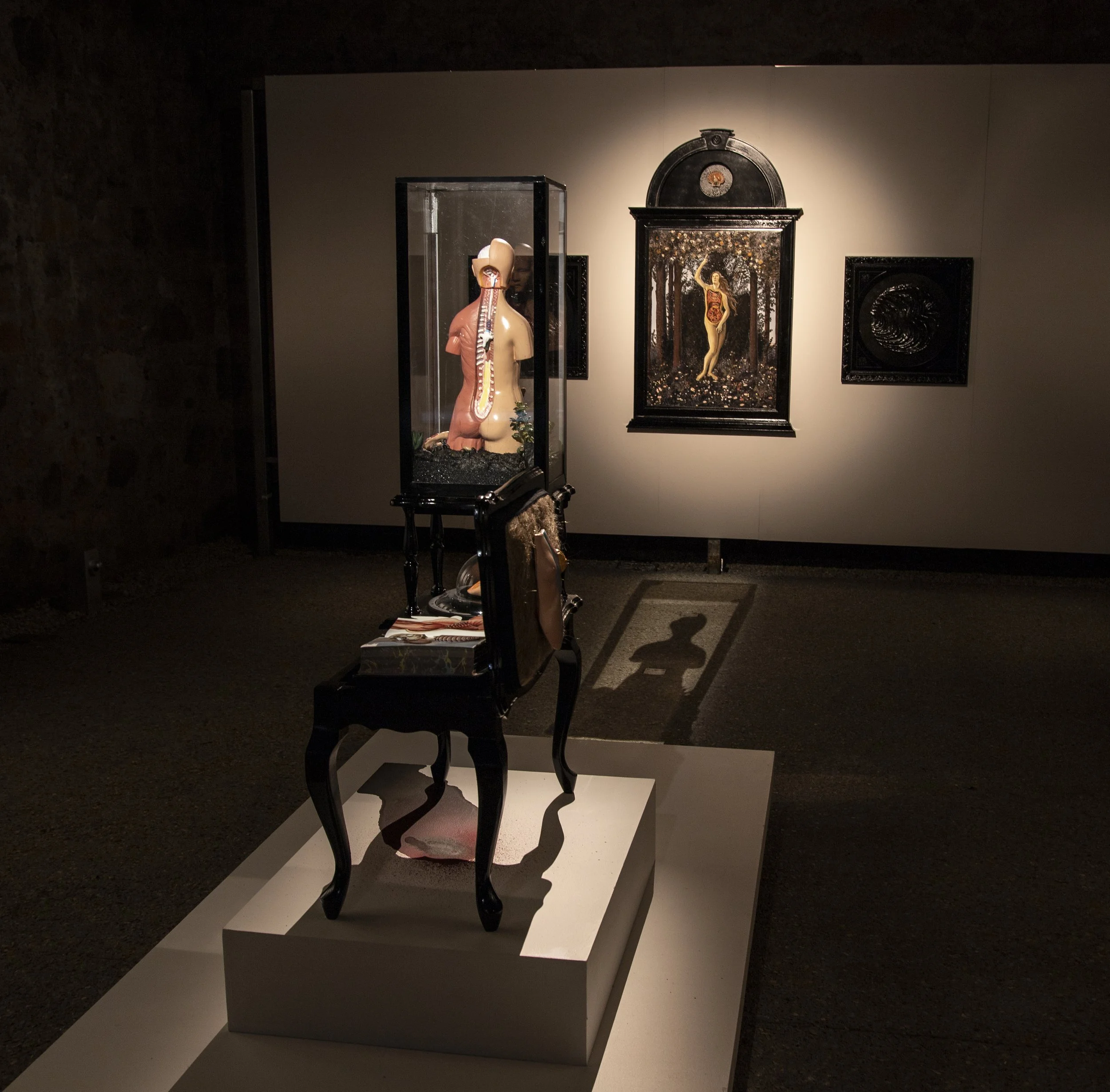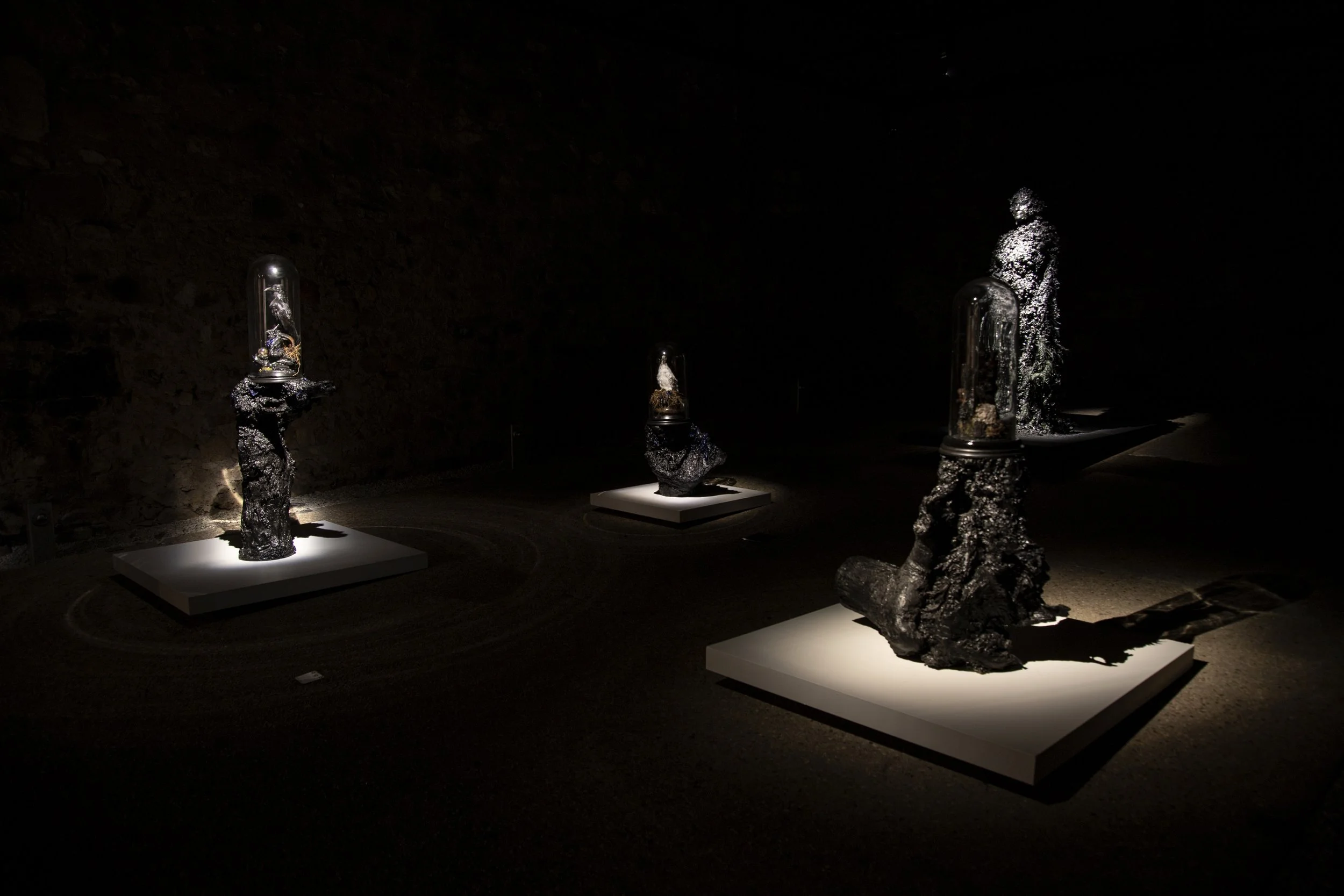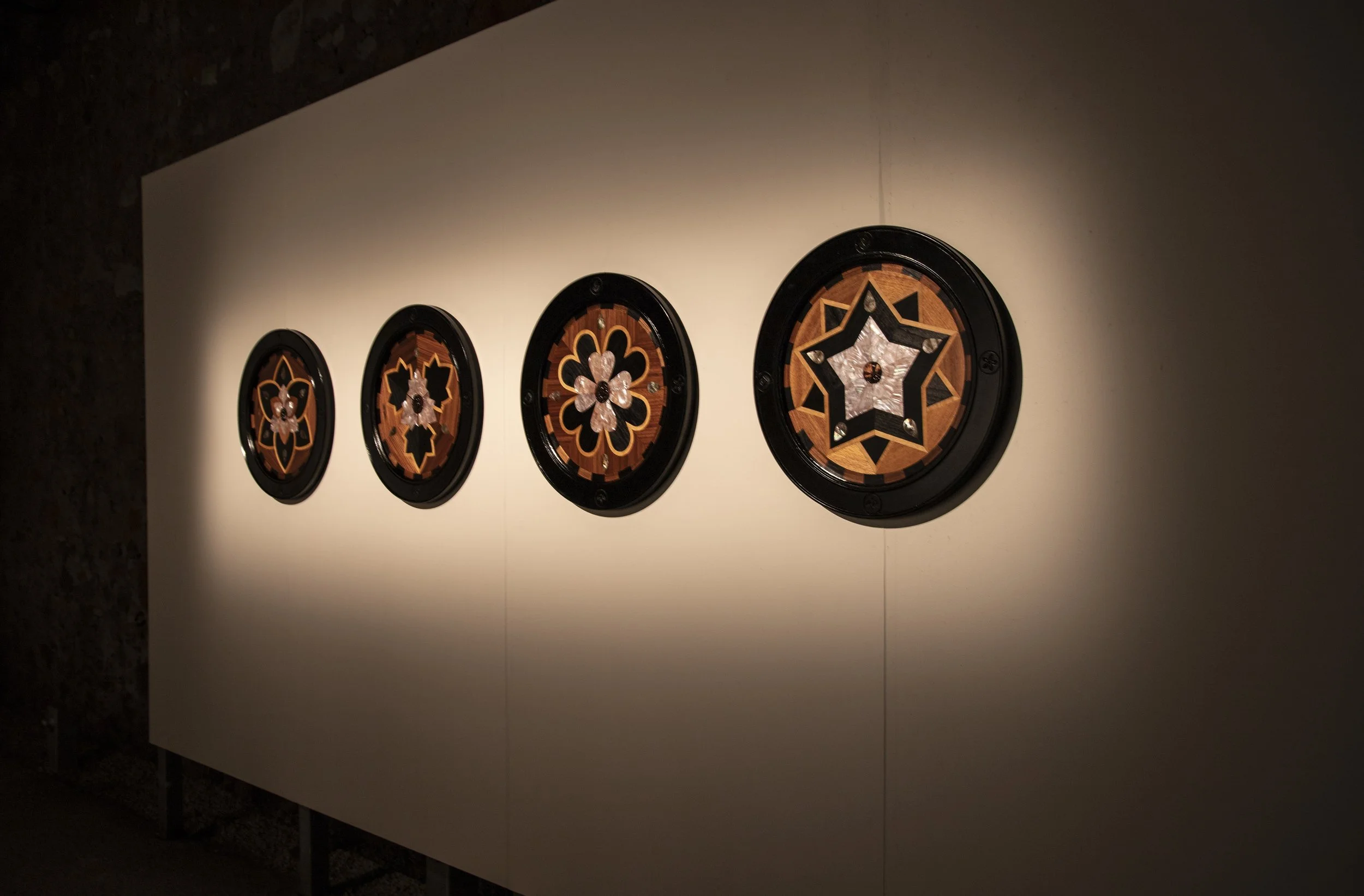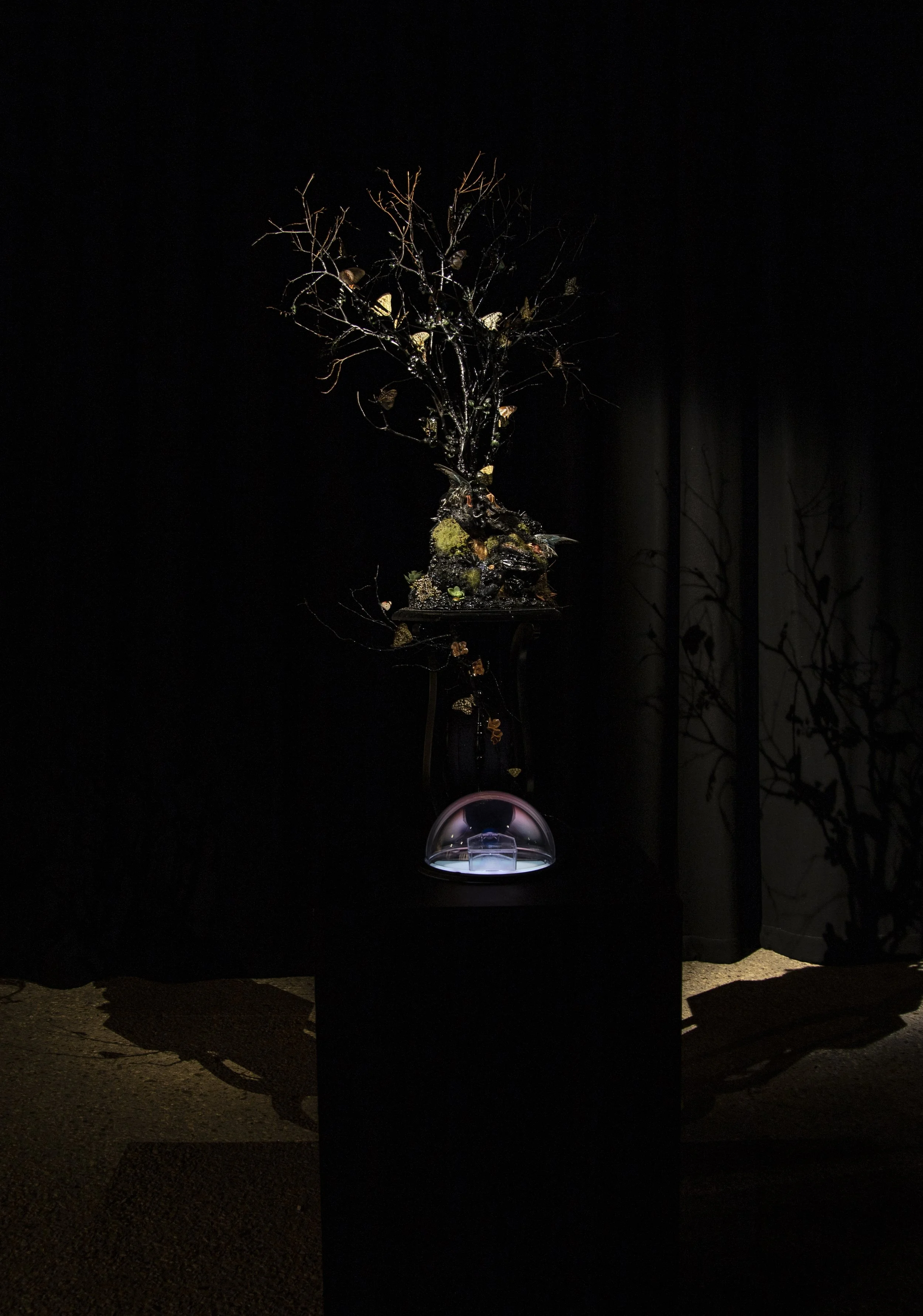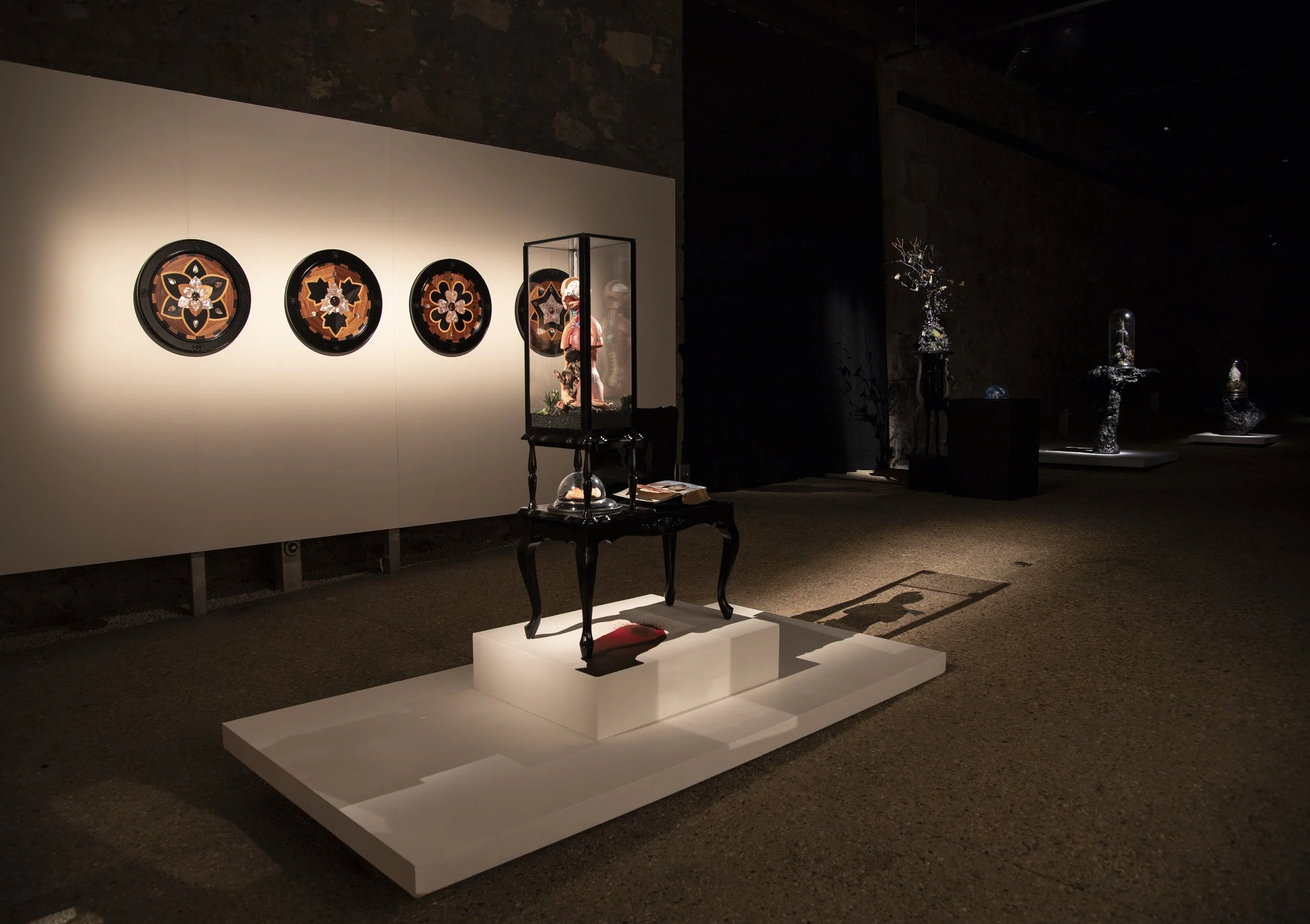Mourning Story
EXPECTATIONS, ABSENCES AND THE POTENTIALS FOR SELF-PERSISTENCE
The Mourning Story project by Svenja Kratz is a deeply personal and conceptual exploration of grief, loss, and redefined identity, framed through biotechnological and artistic lenses. Exhibited at Rosny Barn Gallery [lutrawita] in 2020 under the title Mourning Story: Expectations, Absences, and the Potentials for Self-Persistence, the work delves into themes of situational childlessness and aims to challenge traditional constructs of womanhood and motherhood. The exhibition includes a series of intricate marquetry panels and sculptures, created in collaboration with woodcraft specialist Dr Phil Blacklow, which incorporate symbols and materials (such as preserved period blood) that address both hidden and cultural expectations around femininity and reproductive identity.
Central to the project is a life-size sculpture, Coming to Terms with Being Forgotten, which contemplates the idea of genetic legacy and the artist's recognition of her place within a larger cycle of life, death, and transformation. Another prominent piece, SVKR-LM: Tumour Baby, emerges from Kratz’s own experience with uterine pathology, symbolising a form of alternative progeny through the establishment of a potential cell line from a large fibroid growth. This work serves as both a creative and scientific exploration into self-persistence, as it aims to transform the tissue into a biological legacy through cell culture and preservation. This process raises philosophical questions around identity, kinship, and biological continuation outside traditional reproductive narratives.
Ultimately, Mourning Story extends beyond personal narrative to invite broader contemplation on the intersection of biotechnology, identity, and cultural expectations. By transforming biological materials into artistic expressions, the project challenges viewers to reconsider inherited ideas of legacy, kinship, and self-perpetuation. In examining nontraditional pathways to continuity and exploring bodily materials as potential vessels of memory, Mourning Story provokes a nuanced dialogue on the ways biotechnology can reshape our understanding of reproduction, identity, and human connection within an evolving social and scientific landscape.


